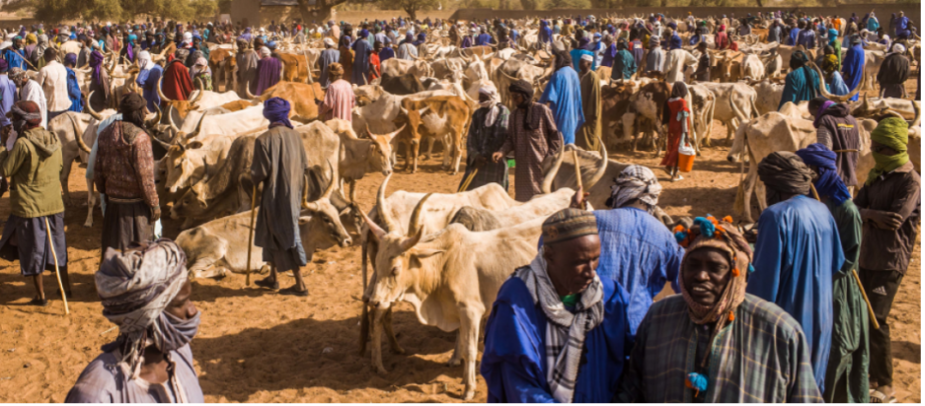News
The Standing Field Committee for Development Economics of the German Economic Association (GDE) and the European Development Economics Group (EDEG) invite submissions for their joint International Conference, which will be hosted by the Kiel Institute on June 11–12, 2026.
The conference brings together international scholars and researchers of development economics and neighboring fields. Plenary sessions with keynote speakers, parallel sessions with contributed papers, and poster sessions will reflect the current state of research in development economics and provide a forum for exchange for researchers and practitioners.
We invite interested contributors to submit their full papers by February 15, 2026. Notifications of acceptance will be sent out by late March 2025.
Please find further information and the full Call for Papers here. For submissions and more details, visit the official conference website.
Der Entwicklungsökonomische Ausschuss des Vereins für Socialpolitik vergibt in enger Kooperation mit der KfW Entwicklungsbank den Förderpreis 2026 für praxisrelevante Entwicklungsforschung.
Der Preis will den Dialog zwischen Wissenschaft und Praxis fördern und honoriert herausragende Forschung, die das Verständnis vertieft, wie Entwicklung geschieht, gelingt oder gefördert werden kann. Der Preis richtet sich an Nachwuchswissenschaftler:innen und prämiert drei Doktorarbeiten, die wissenschaftliche Exzellenz und Praxisrelevanz für die Entwicklungspolitik vereinen.
Die aktuelle Ausschreibung finden Sie here. Für weitere Informationen klicken Sie bitte here.
Research of Members

Vietnam ist eine Erfolgsgeschichte der Globalisierung. Die tiefe Integration Vietnams in die Globale Wertschöpfungsketten wurde durch die Einrichtung von Sonderwirtschaftszonen (SWZ) vorangetrieben. In diesem Papier werden die Auswirkungen dieses SWZ-Programms auf den lokalen Arbeitsmarkt untersucht. Wir verfolgen die bebaute Fläche der SWZ im Laufe der Zeit, um ein neuartiges kontinuierliches Maß für die die Präsenz von Sonderwirtschaftszonen zu konstruieren, indem wir historische Satellitenbilder verwenden. In einem Differenz-in-Differenzen-Design mit kontinuierlichem Treatment untersuchen wir die Auswirkungen der Präsenz von SWZ auf die lokalen Arbeitsmarktergebnisse auf Bezirksebene für den Zeitraum 2009-2019. Wir stellen fest, dass die Ausweitung der SWZ zu einer raschen Verlagerung der Beschäftigung von Selbstständigkeit und Familienarbeit in der Landwirtschaft hin zur industriellen Beschäftigung in ausländischen Unternehmen geführt hat. Wir zeigen auch, dass SWZ zu höheren Löhnen und mehr formellen Arbeitsverträgen führt. Diese Verbesserungen beschränken sich nicht nur auf Arbeitnehmer in ausländischen Unternehmen, sondern wirken sich auch auf Beschäftigte in Familienbetrieben und anderen inländischen Unternehmen aus. Die Auswirkungen auf Frauen sind für den größten Teil dieser Effekte verantwortlich.

We used a randomized controlled trial to compare matching grants earmarked for technical training and consulting services with more flexible cash grants and with a control group. The experiment was implemented in a semi-urban and rural fragile setting where subsidizing innovative activities might be particularly important. Firms were selected on the basis of a business plan competition. After two years, beneficiaries of cash grants showed higher survival rates, improved business practices, a higher degree of formalization, and more activities for innovation relative to recipients of matching grants and the control group, but we saw no effects on profits, sales, and employment. Across all outcomes, beneficiaries of cash grants performed better than beneficiaries of matching grants, for them the treatment effects are smaller and often insignificant, though implementation costs were higher. Recipients of cash grants also increased their capital stock more and were more resilient to the COVID-19 crisis.
Vacancies
The Chair of International Economic Policy (Prof. Krisztina Kis-Katos) and the Chair of Development Economics and Global Political Economy (Prof. Andreas Fuchs) at the Georg-August-Universität Göttingen are seeking a qualified candidate for a PhD Research Fellow position (75%, pay grade 13 TV-L). The position is initially limited to three years, with the option of renewal.
The successful candidate will contribute to the research project “Mapping China’s Economic Diplomacy (ChiWiDi)”, support the development of two new databases on Chinese aid and diplomatic activities, and conduct empirical research using modern econometric methods. The position also includes limited teaching responsibilities.
The deadline for application submission is November 14, 2025. The start date is upon agreement but should be no later than April 2026.
Further information can be found here.
The RWI Policy Lab and Research Group Population and Development together with the Health Economics Research Group at the BNITM invite applications for a PhD-candidate (m/f/d) (65% for 3 years).
The position is to work in close collaboration with Prof. Renate Hartwig (RWI) and Dr. Jan Priebe (BNITM) on a project studying novel interventions in the livestock sector in Saharan Africa. The project combines chemical, medical and epidemiological data with novel primary data collected in farm- and household surveys as well as field experiments.
The successful candidate will, among others, collaborate on exciting and challenging projects at the intersection of health and economics. They will support the collection and harmonization of existing data, and contribute to the design and implementation of novel data collection tools and techniques. The role also involves participating in data analysis and contributing to the subsequent write-up and publication of results. In addition, the successful candidate is expected to actively engage in both academic and policy discourse and outreach.
The position (65%) is initially limited to three years, but an extension is desired. The position is based in Hamburg and in Essen/Germany starting in October 2025. Details can be arranged in consultation with the candidate. The remuneration and benefits are based on the German public service pay scale (65% TV-L E13) and in accordance with the rules of public service as outlined in TV-AVH (Collective bargaining agreement of the Hamburg Labor Law Association). Depending on external funding opportunities, there may be the possibility to increase the position’s working hours beyond the initial 65%.
The application deadline is June 30, 2025. Further information can be found here.
Event Information
The 3D Seminar The 3D seminar is a monthly 45-minute online forum, in which one researcher and one practitioner touch upon key topics in development policy, stimulating a meaningful dialogue across the theory and practice divide. The sessions will be held at 3:00 PM (UTC +1, Berlin Time Zone).
Further information about the 3D seminar can be found on the website. You can subscribe to the newsletter here.

The Development Economics Committee of the German Economic Association invites submissions for the 2024 Doctoral Workshop, organized by Prof. Sebastian Vollmer at the University of Göttingen. This workshop is scheduled to take place on 26 September 2024 in Göttingen.
Participants must be registered doctoral students in development economics at a university in a German-speaking country, fluent in English, and have a draft research paper ready. Supervisor attendance is encouraged but not required.
While there are no fees, participants must arrange and fund their own accommodation, food, and travel. Interested applicants must submit extended abstracts (2-3 pages) or full papers (PDF) by 22 August 2024.
Further information can be found here.
